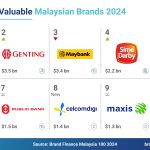(Marketingmagazine.com.my) -The Malaysian consumer confidence ended 2015 on a subdued note as the index went up two points from the third quarter to 80 percentage points (pp), according to the latest Nielsen Global Survey of Consumer Confidence and Spending Intentions released today by Nielsen, a global performance management company.
In the latest online survey, conducted 2–25 November, 2015, confidence levels in Southeast Asia continues to remain high with four out of six countries in the region scoring above the 100 pp mark, Singapore and Malaysia being the exception. The Philippines (117 pp, unchanged from last quarter), Indonesia (115 pp, -1), Thailand (114 pp, +3) and Vietnam (105 pp, +3) retain their titles as the top 10 most confident countries globally while Singapore scored 94 pp (-7).
Globally, Malaysia ranked 36th most confident country in Q4 2015 (up 7 spots from last quarter). The average global consumer confidence is 99 pp (-2 pp versus last quarter). (See Chart 2). Consumer confidence levels above and below a baseline of 100 indicate degrees of optimism and pessimism.
“Consumer confidence has remained at what was the all time low recorded in Q3 with just a small gain in Q4. This is not a surprise as nothing has really changed in terms of the economic or political environment with oil prices continuing to drop, the Ringgit remained at its weak position and concerns surrounding job security continued to simmer.” said Richard Hall, Nielsen Malaysia’s Country Manager.
The Nielsen Global Survey of Consumer Confidence and Spending Intentions, measures consumer confidence, major concerns and spending intentions amongst more than 30,000 respondents with Internet access in 60 countries.
ECONOMIC UNCERTAINTY LINGERS AS MAIN CONCERN FOLLOWED BY JOB SECURITY & DEBT
Although the economy remained the Malaysian consumer’s key concern with half of the respondents being worried about the nation’s financial status (50% versus 61% in previous quarter), about a quarter of the respondents have said job security is now second most worrying (25%, an increase from 18% in last quarter).
While political stability registered as the second highest concern in previous quarter, it recorded the biggest decline this quarter with only 17% respondents being worried about the nation’s political scene (-17% from previous quarter). Other major concerns that made the top 10 list of key concerns this quarter include debt (17%, up 4%), increasing food prices (17%, up 3%), work/life balance (15%, up 4%) and crime (9%, up 4%). (See Chart 3).
Recessionary sentiments still grips over eight in 10 Malaysian consumers who feel that the nation is still in a state of economic slump (84%) while only one in five feels optimistic that the country will be out of an economic recession in the next 12 months (22%, unchanged from previous quarter). About two thirds of Malaysians also feel that local job prospects are not so good, even bad this year (64%).
“Despite government and financial institutions reassurances that the economy is in good shape and resilient, there is an underlying uneasiness with consumers and this sentiment is unfortunately transferring to their everyday spending habits.” observes Hall.
SAVING TAKES PRECEDENCE OVER SPENDING
Southeast Asian consumers continue to remain the world’s most avid savers, with over three in five of the region’s consumers depositing spare cash into savings. Vietnamese continue to rank first globally when it comes to stashing spare cash into savings (79%) followed by Indonesians in second place (75%). Joining the top 10 list of countries globally in saving any extra monies after covering essential living expense are the Philippines (fifth place with 65%), Singapore (seventh place with 64%), Malaysia (ninth place with 63%) and Thailand (tenth place with 60%). On average, less than half of global consumers priorities saving spare cash (49%).
As Malaysian consumers focus on building their savings, they are also tightening their belt when it comes to big ticket indulgent. Only about a third of Malaysians would go on vacations/holidays (36% versus 42% last quarter) while only one in 10 Malaysians would spend on out-of-home entertainment (13%, down 6% from previous quarter) and new technology products (12%, down 6% from last quarter).
In view of the increasing general cost of living in the country, Malaysian consumers continue to be prudent about their spending habits. Over eight in 10 Malaysian consumers have changed their spending habits in the last 12 months to save on household expenses (84%). About three in five Malaysians have cut down their spending on new clothes (64%) and out-of-home entertainment (58%) while half of the consumers have tried to save on gas and electricity (51%) and switching to cheaper grocery brands (51%) in an effort to improve household savings in the past year.
“There are still lingering effects from the introduction of the GST in consumers’ minds where they believe that the impact of GST is far greater on their spending power than the inflation data suggests. This effect will lessen this year and we believe that the effect will be fully out of the system by the middle of the year.” said Hall.
Top 10 major concerns among Malaysian consumers (Q4 2015 vs. Q3 2015) [%]

Source: Nielsen Global Survey of Consumer Confidence & Spending Intentions, Q4 2015
Top 10 actions Malaysian consumers have taken to improve household savings in the past 12 months (Q4 2015 vs. Q3 2015) [%]

Source: Nielsen Global Survey of Consumer Confidence & Spending Intentions, Q4 2015
MARKETING Magazine is not responsible for the content of external sites.









